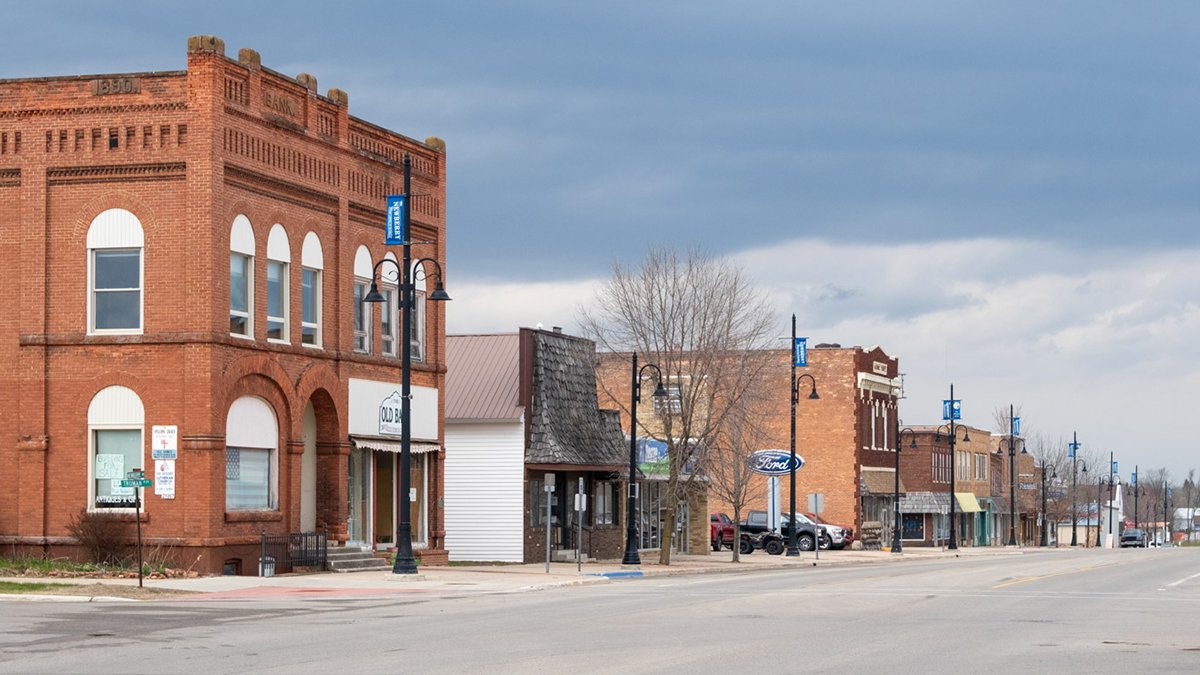Newberry, Michigan
A village among the white pines
While camping at Muskallonge Lake State Park, we enjoyed visiting the Village of Newberry. It was late April so things were just starting to ramp up for the warmer weather, but the town was still pretty empty apart from people who live there. One evening, while waiting for our food order at Timber Charlie’s to be ready, I set off on foot to take some photos of the village. Although it only occupies a tiny stretch of M-123, the stretch of road they call Newberry Avenue is clad with historic buildings, businesses that serve the community year-round, and family stories that hearken back memories almost a century and a half old.
Newberry was founded in 1882 and was named after John Stoughton Newberry, a University of Michigan graduate, railroad engineer, maritime lawyer, and baseball player. He would later be appointed the first Provost Marshal of the State of Michigan in 1862 and served Michigan’s first district in the House of Representatives from 1879 until 1881, declining to run again after his first term. Newberry was involved in railroads intermittently throughout his life, and his involvement in the Detroit, Mackinac, and Marquette Railroad would have made him a known figure in the Upper Peninsula.
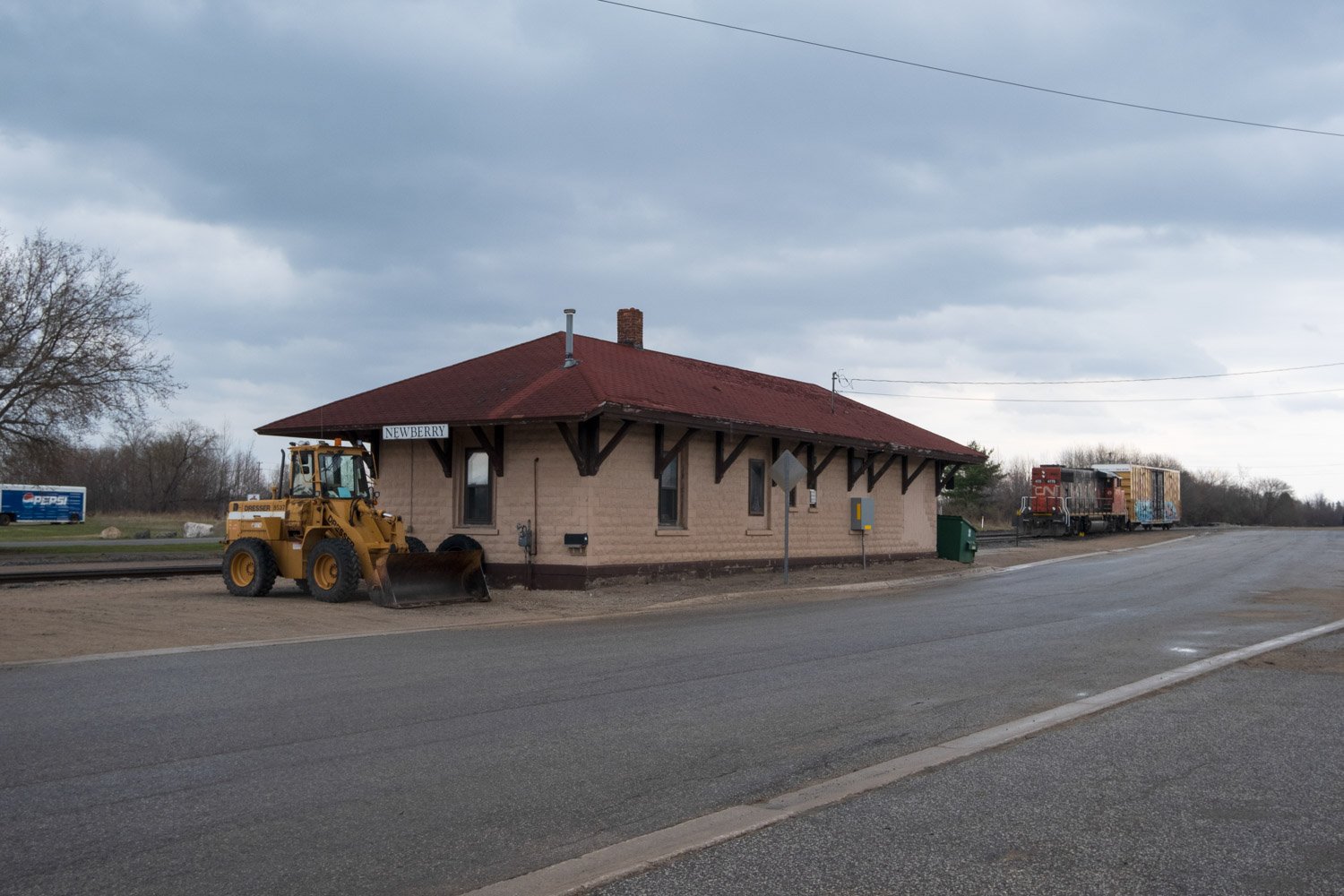
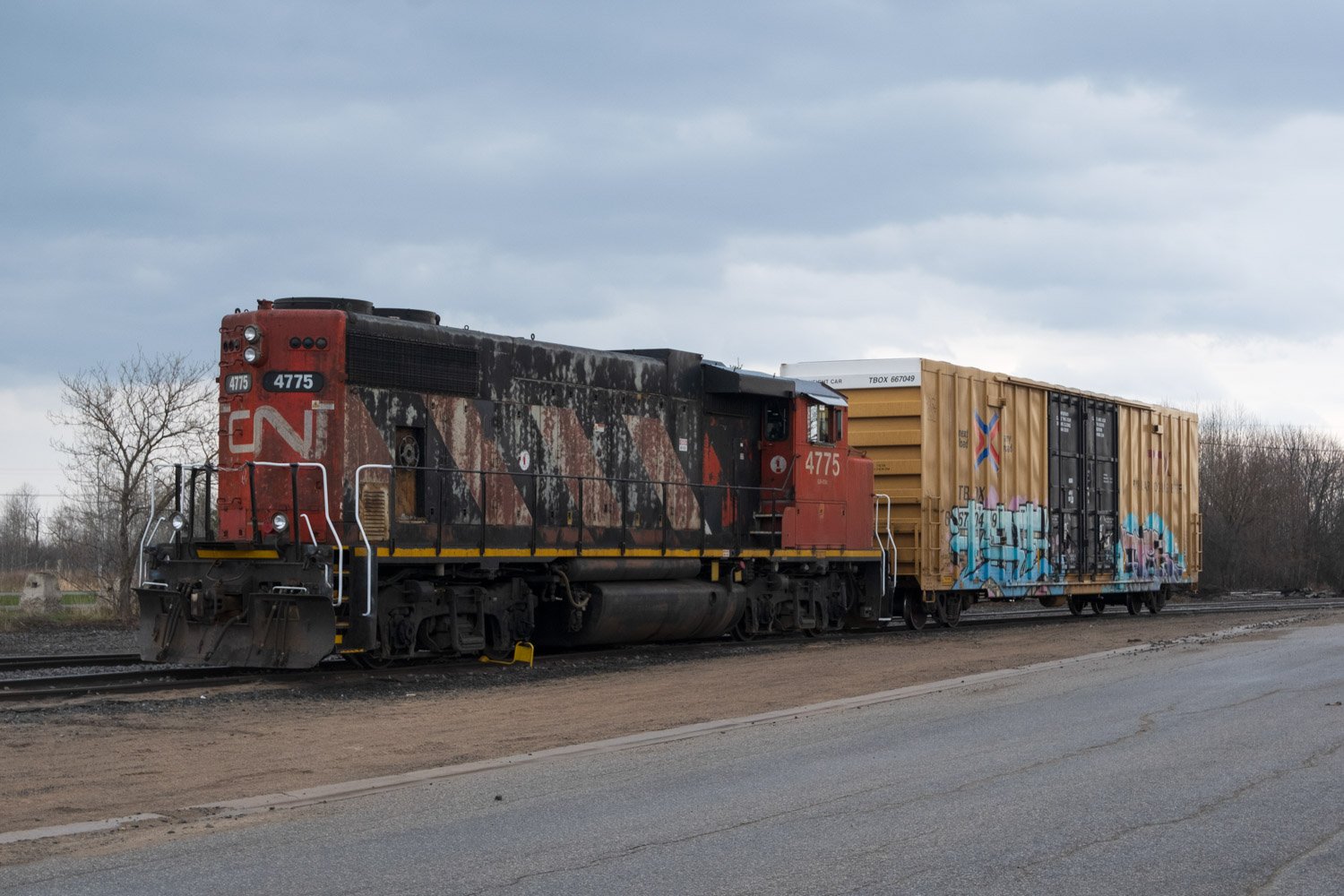
The Detroit, Mackinac, and Marquette Railroad was formed in September of 1878 with plans to build a rail line from Marquette to St. Ignace. In 1881, the line was completed, which led the company to form a joint subsidiary with the Michigan Central and Grand Rapids & Indiana Railroads to operate a car ferry service across the Straits of Mackinac. Michigan Central had been working to complete a line from Bay City to Mackinac, which was also completed in 1881. With the completion of both lines and the new car ferry service, Marquette was connected to cities of Michigan and the Midwest for the first time by rail.
Seeing that the plot of land that would become Newberry resided within John Newberry’s congressional district and Mr. Newberry’s involvement in the rail line that directly or inadvertently employed many of the soon-to-be citizens of Newberry, naming the town after such a person made sense.
Prospectors chose the village's location because it was around the mid-way point between Marquette and St. Ignace and its close proximity to the hardwood forests, the latter of which enabled Newberry to become the logging epicenter of the eastern Upper Peninsula. Luce County was organized shortly after the village was founded, and Newberry became the county seat. The town had about 30 houses, a general store, and the Vulcan Furnace Company. They were the main employer in Newberry at this time, manufacturing charcoal iron from the hardwood surrounding the town. With the rail line's completion and the ferry service launch connecting the Upper Peninsula and Lower Peninsula, Newberry’s population increased dramatically as the need for more lumberjacks increased. By the 1890s, the population was over 1,000, peaking at just over 2,800 in 1950.
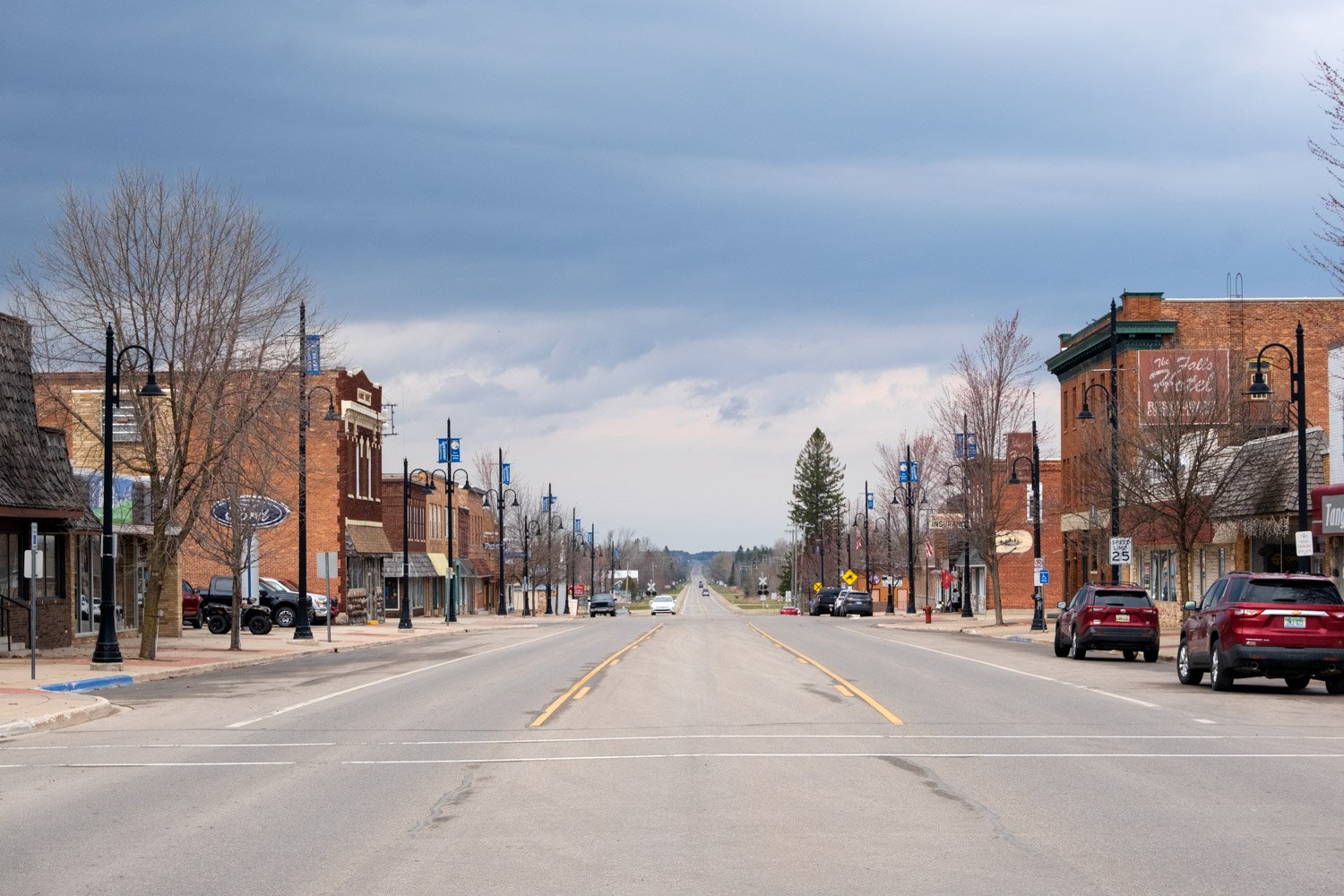
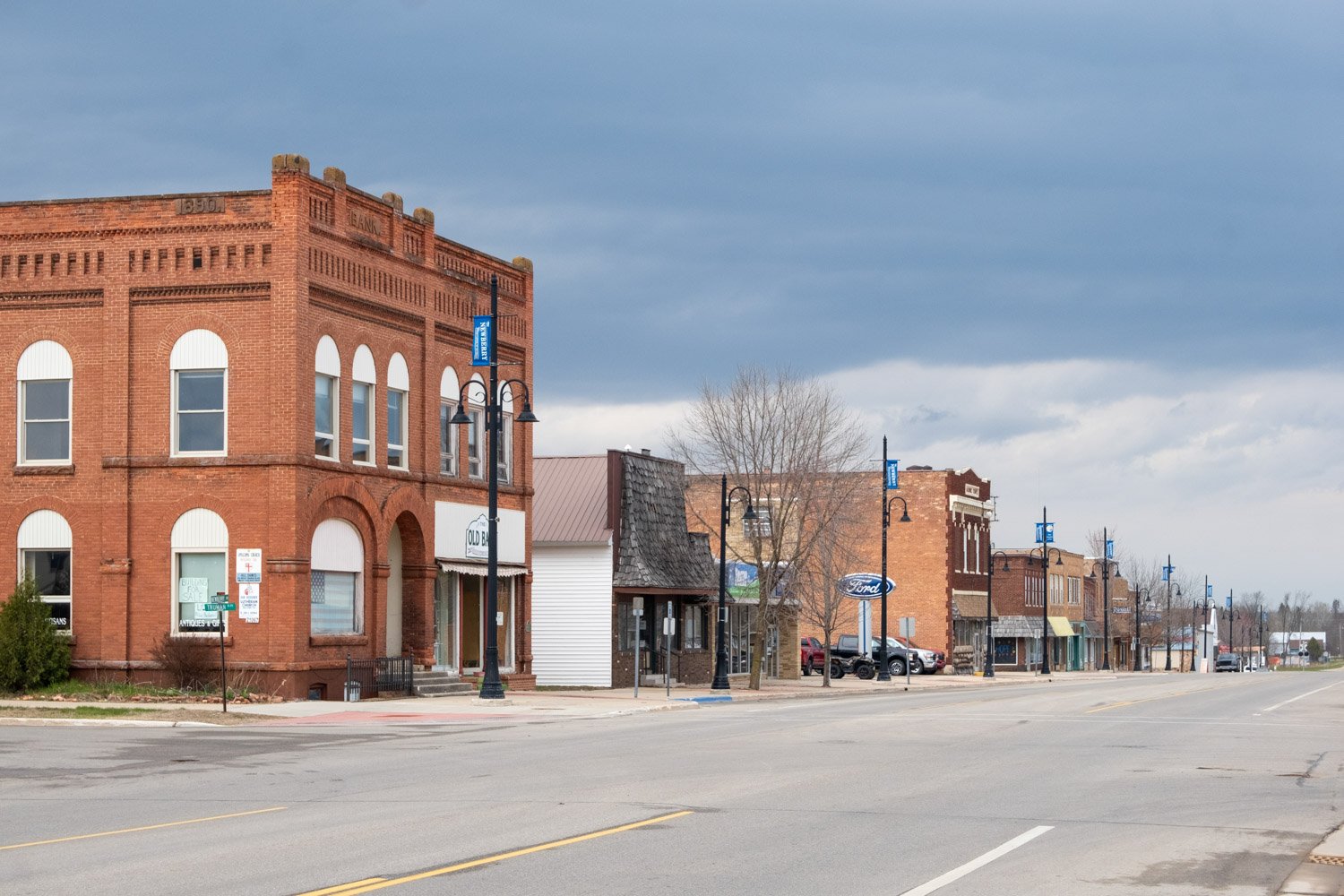
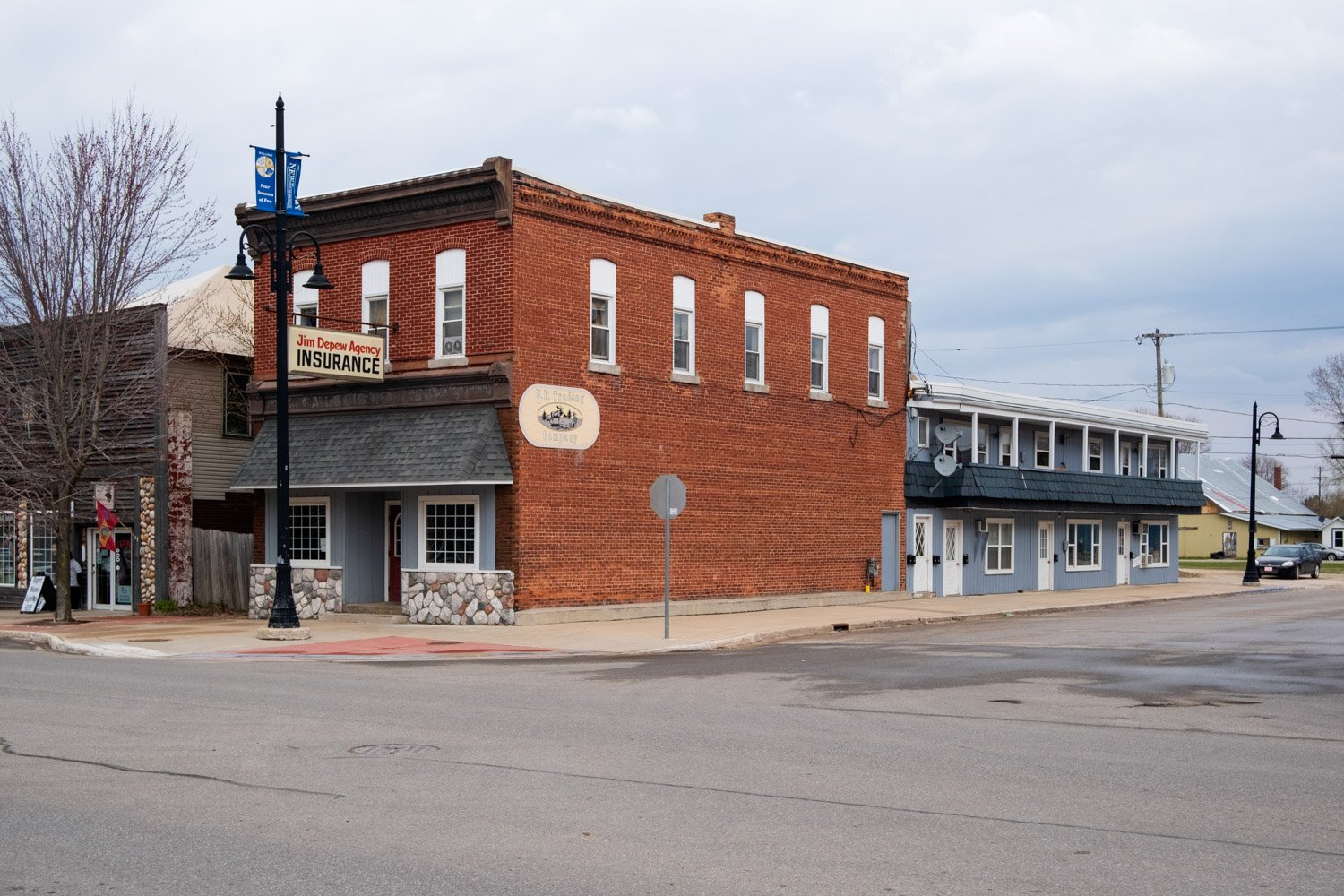
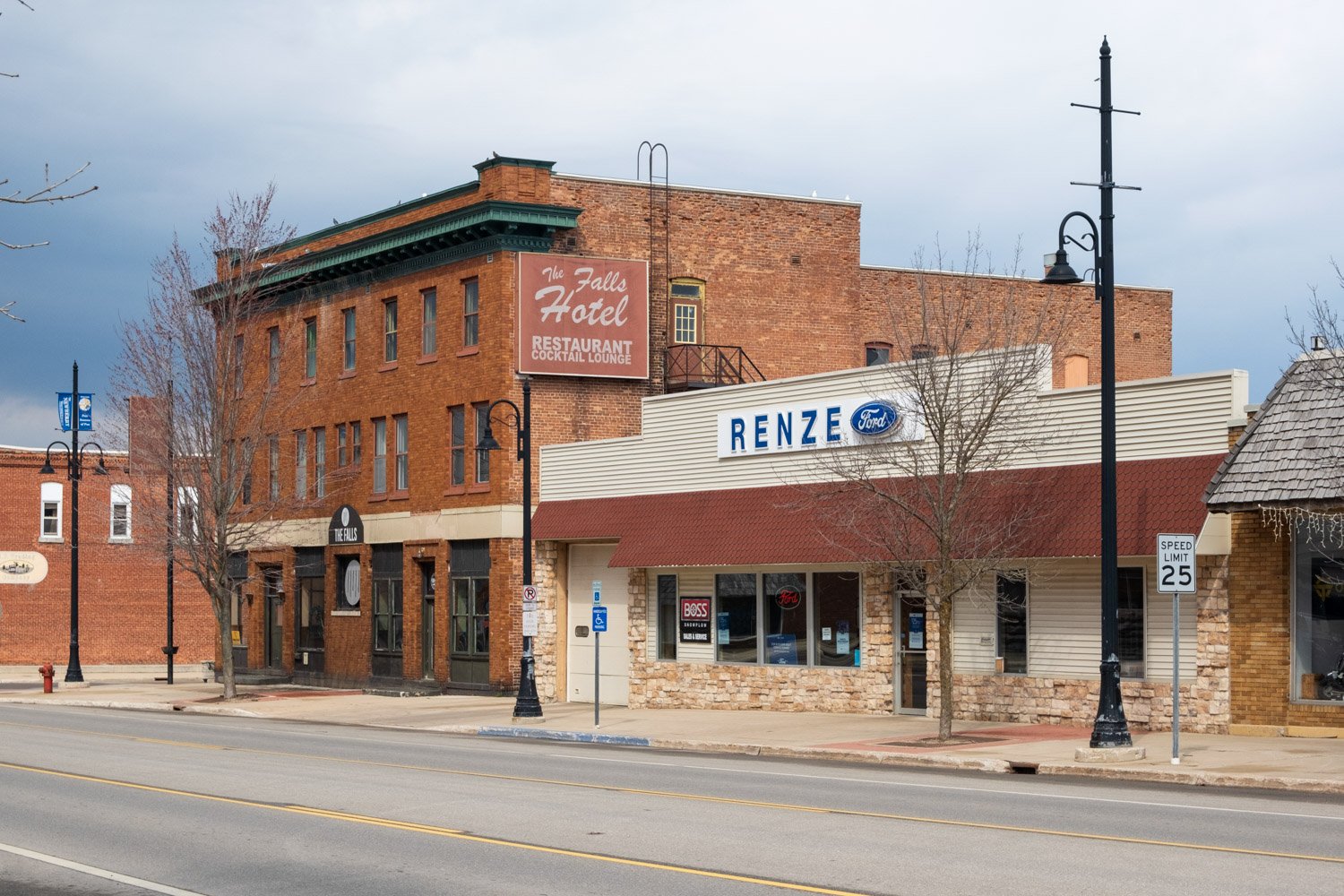
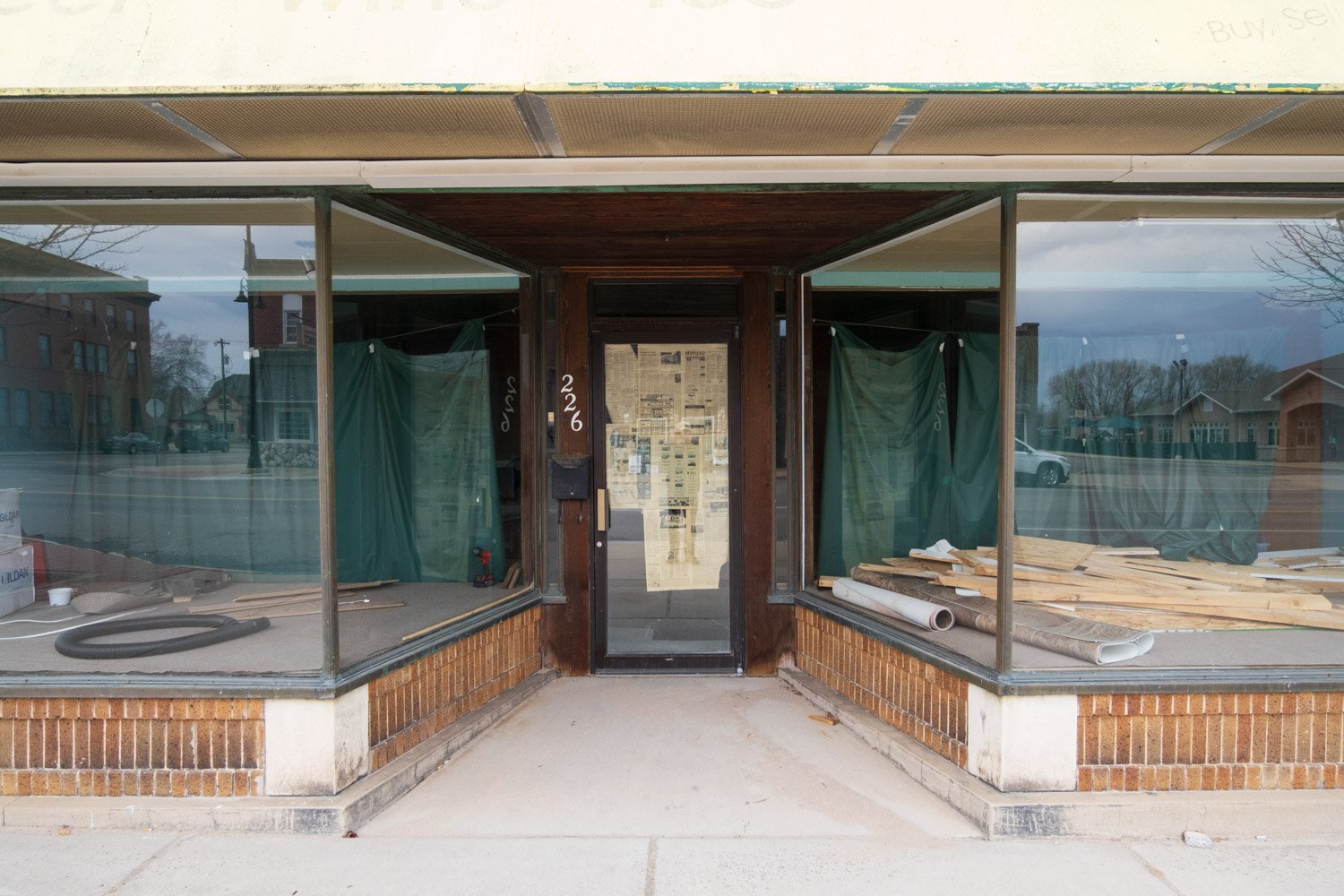
In 1895, the first structure of the Upper Peninsula Hospital for the Insane was built on the south side of Newberry. The hospital was renamed the Newberry State Hospital in 1911, growing large enough to house thousands of patients. In addition to the hospital building, the complex had many cottages, a farm, a conservatory, an assembly hall, a dining hall, and an administration building that formed a large quadrangle with green space in between. It was renamed the Newberry Regional Psychiatric Hospital in 1977, eventually closing for good in 1995. It was converted into a prison by the Michigan Department of Corrections and opened as a medium security level prison a year later, housing over 1,000 inmates. The quadrangle and many of the buildings from the hospital still stand on the property just east of the prison but are off-limits.
In the late 1800s, Michigan was the largest timber producer in the United States. Very few areas of Michigan were not taken down at some point by the lumber industry. Newberry was a unique location because it offered the extremely sought-after white pine and hardwood trees. The logging boom eventually ended, leaving many men rich and others out of a job when things slowed down. Logging still has a presence in the Upper Peninsula in the workforce and culture, but similar to mining, is nowhere near as expansive as it once was. As time passed, many landowners did not have the money to pay the property taxes for the vast swaths of land they owned as they could no longer be clear-cut for quick cash. This led to a lot of land coming back into the possession of Uncle Sam and the creation of many State and National Forests. Lake Superior State Forest surrounds Newberry, and to the east lay the Escanaba and Copper County State Forests. The Hiawatha and Ottawa National Forests also take up vast amounts of land in the Upper Peninsula as well.
Newberry was home to the Lake Superior Iron & Chemical Company north of the train tracks. They produced a number of different products, including pig iron, charcoal, and wood alcohol. The Newberry facility was said to have employed over 400 men at its peak, closing its doors in the mid-1940s.
The Newberry State Bank Building was constructed in 1890, the same year that The Newberry Bank was founded. After it received a bank charter in 1908 from the State of Michigan, it changed its name to the Newberry State Bank. The bank no longer has a presence in the Upper Peninsula but is now called University Bank and headquartered in Ann Arbor. The Beaulieu Furniture Store also called the building home, and the Beaulieu Funeral Home was directly behind the building for some time. The building now houses shops with artisan goods, books, antiques, and earth-friendly products. The Beaulieu Funeral Home still operates behind the building.
The cornerstone for McMillan Lodge #400 was laid in 1915, and the building was completed and dedicated in 1917. The charter had been granted in January of 1891 from the Grand Lodge of Michigan, and Louis H. Fead was a lodge member. He was the prosecuting attorney for Luce County from 1901-1913, served the American Red Cross in World War I, was Vice President of Newberry State Bank, and served as the Chief Justice of Michigan’s Supreme Court on two separate occasions. He served Michigan’s highest court from 1928 until 1937. He was ushered into the Masonic Fraternity in 1902 as a part of the Lexington Lodge but transferred his membership to the McMillan Lodge in 1905. He would eventually become Most Worshipful Grand Master in 1917. He passed away in 1943. The McMillan Lodge #400 still operates, giving away free books to kids in the community and helping with the local Cub Scouts Troop.
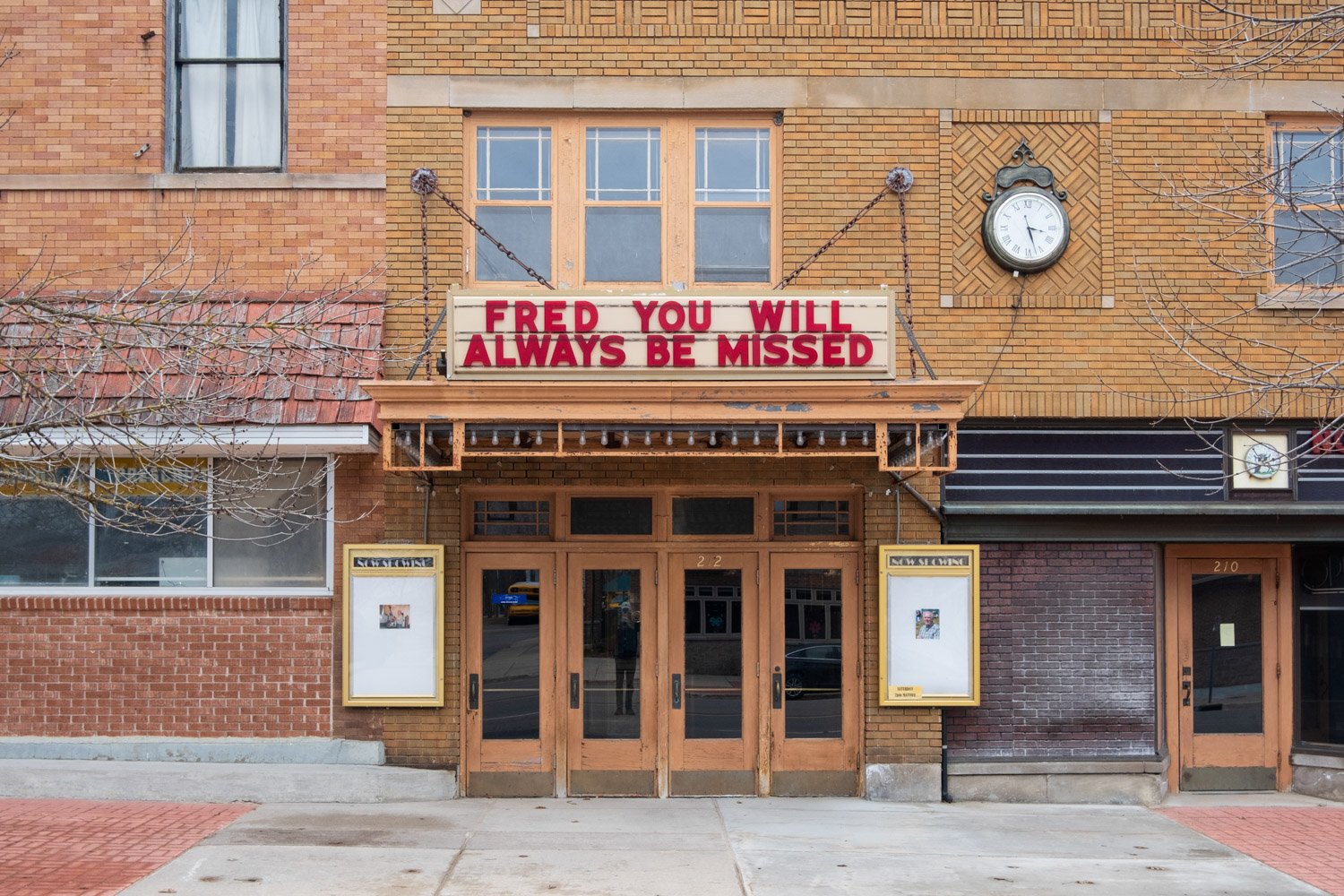
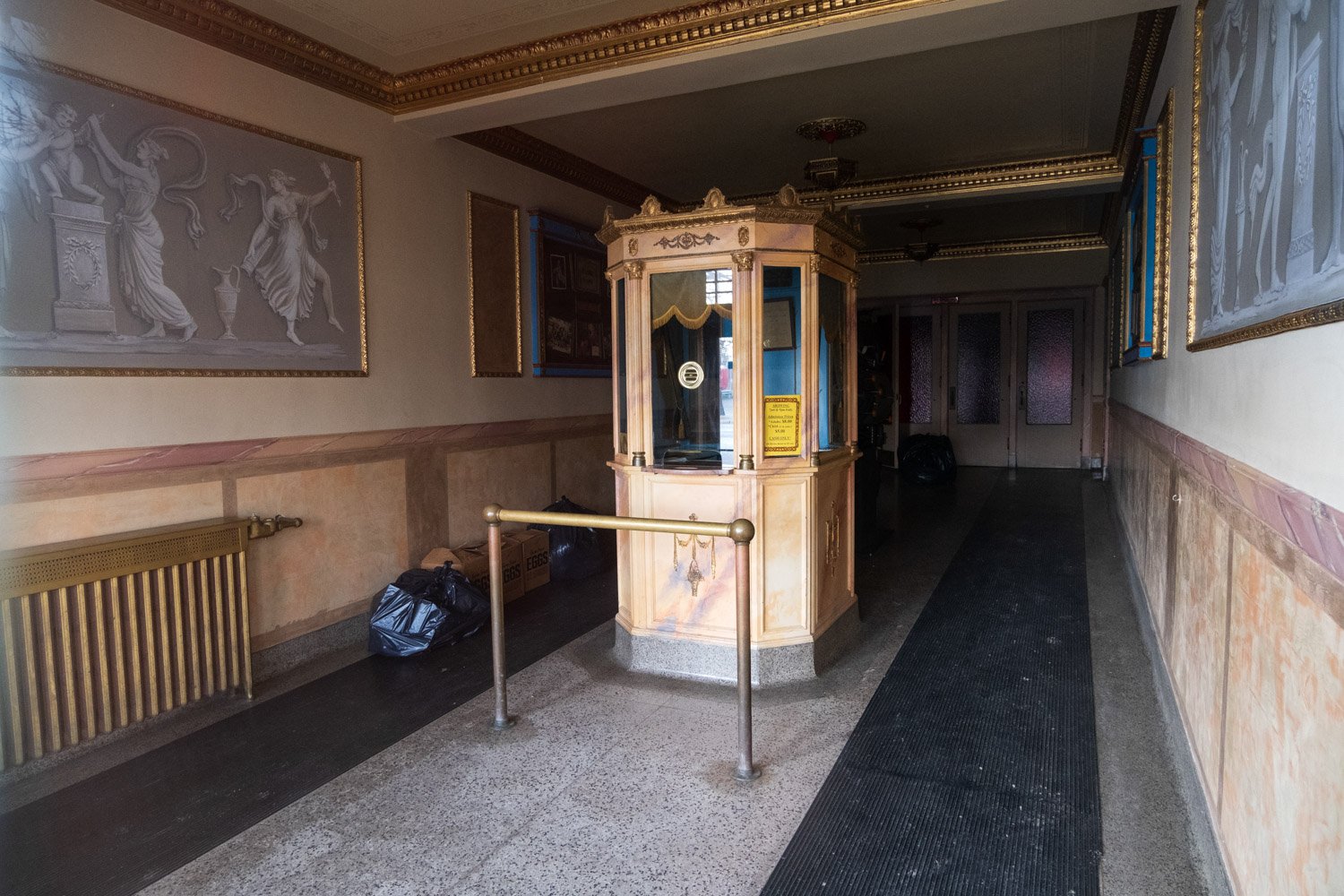
With a growing population, Newberry was home to a number of different restaurants, saloons, shops, and entertainment venues. Ground was broken on the State Theatre in 1929 and opened in 1930 at the hands of Thomas Shimmens. The theater could hold 400 patrons, and although it was smaller than many of the movie palaces in more populated cities in Michigan, it was just as opulent. The theatre was a staple of the community even as Newberry’s population dropped by 200 people from 1950 to 1960 and another 300 people from 1960 to 1970, illustrating a 17% population loss over 20 years. The aging theatre must have required a lot of work to maintain, which, paired with falling patronage, may have been the reason for its closure in 1969.
The theater was purchased by Frederick "Fred" Orval Dunkeld Jr. in 1972, and a year was spent cleaning and renovating the theatre, hosting a grand reopening as the Tahqua-Land Theatre in 1973. Dunkeld sold his farm in McMillan to fund the purchase and renovation of the theatre. The theatre remained open until 2001, when it was once again closed, but this time for good reason. Dunkeld renovated the theatre again, this time bringing in Italian artists to work for almost a year on the 70-year-old building. They worked with real Italian Stucco, plaster moldings, and gold leafing, painted 11 murals depicting Greek fables, and restored the original light fixtures. In addition to the fine art details, new seating, carpeting, and projector upgrades were added. The theatre reopened in December of 2001 with much fanfare and has remained open since.
Sadly, Dunkeld passed away at 81 years old on March 23rd, 2021. He poured his life and soul into the Tahqua-Land Theatre, and because of his hard work, it is in the amazing shape it is today. The building was listed for sale in July of 2021 for $250,000. That includes an apartment upstairs and all of the equipment to run the theatre, including a projector that Fred's daughter Shannon estimates cost nearly $100,000. It is the only theatre for at least 60 miles.
The theatre has since reopened, and we enjoyed a show there in the summer of 2023. It’s a small, personable theatre with local kids working behind the counter.
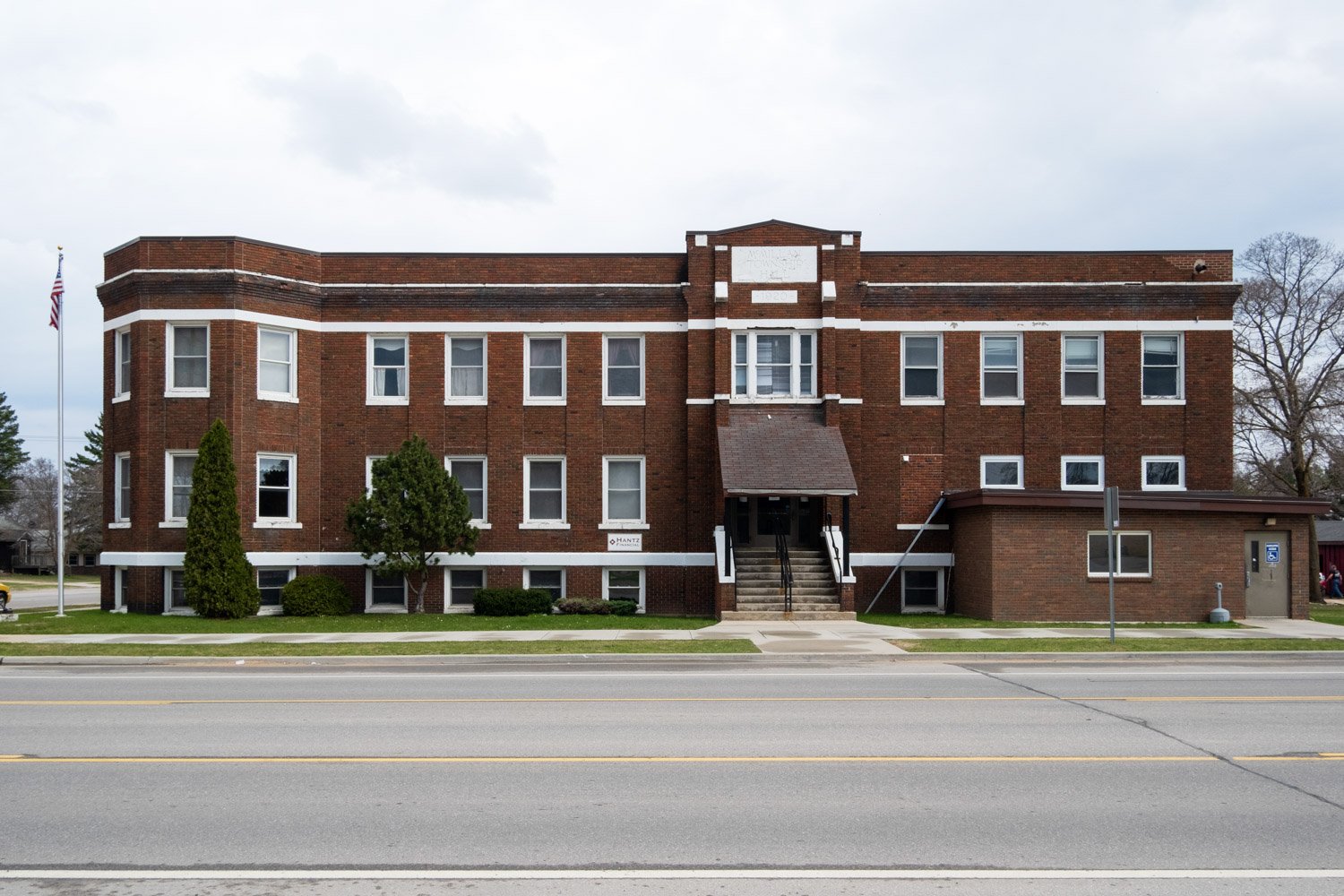
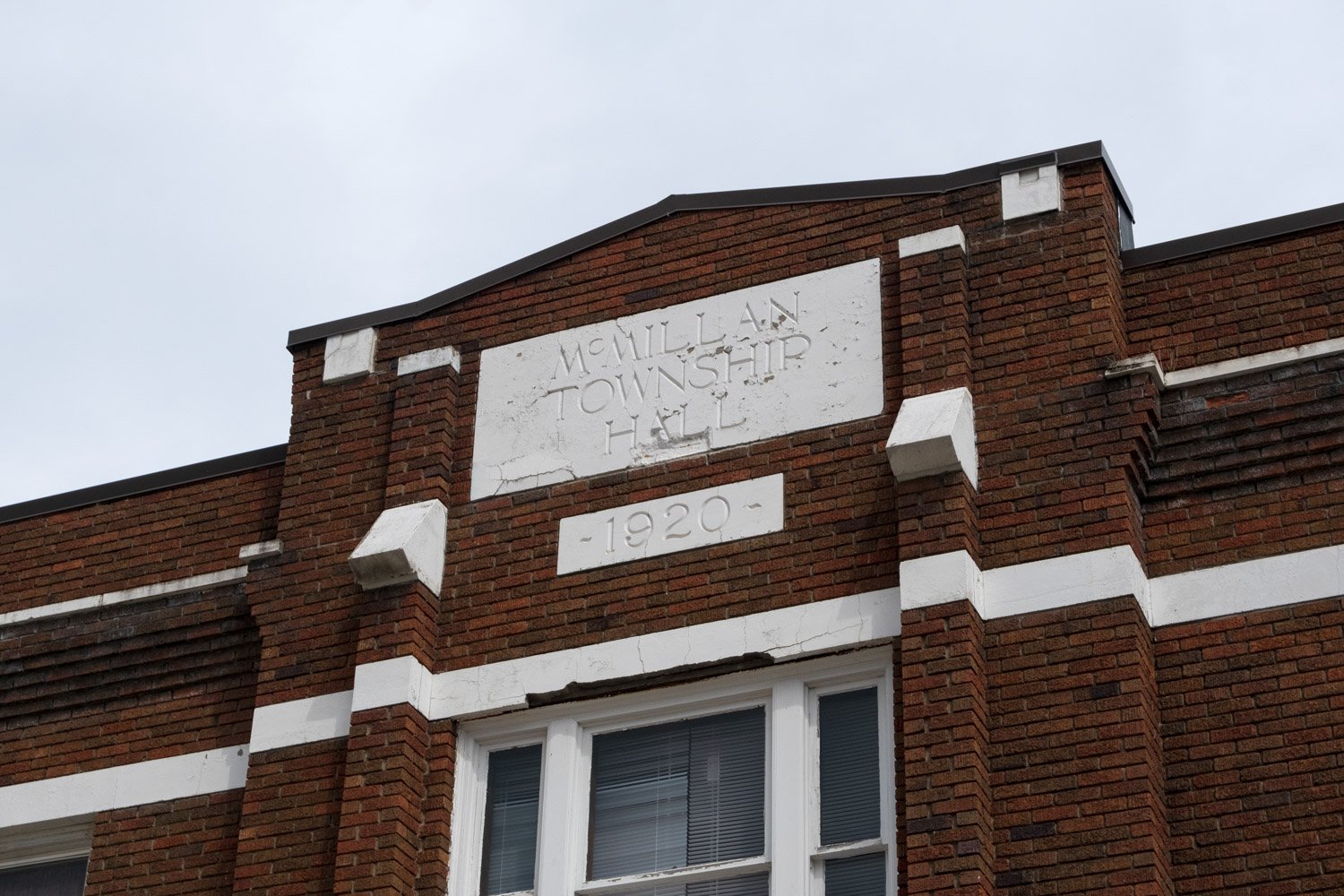
Newberry is the only actual village remaining in Luce County. All of the other settlements either never grew large enough in population to warrant becoming villages or transitioned into unincorporated communities or census-designated places. The McMillan Township Hall once resided within Newberry, but to my knowledge, the building no longer operates as a municipal building. Betty B Landing, Deer Park, Dollarville, Newberry, and Soo Junction are the communities located within McMillan Township. Still, there are a lot of areas where people live that may not be a part of these communities. The township boasts almost 600 square miles of area, making it the largest municipality in Michigan by over 270 square miles. For reference, Detroit’s city limits only tally up 138 square miles, just 23% of McMillan Township’s area, with over 250 times the population.
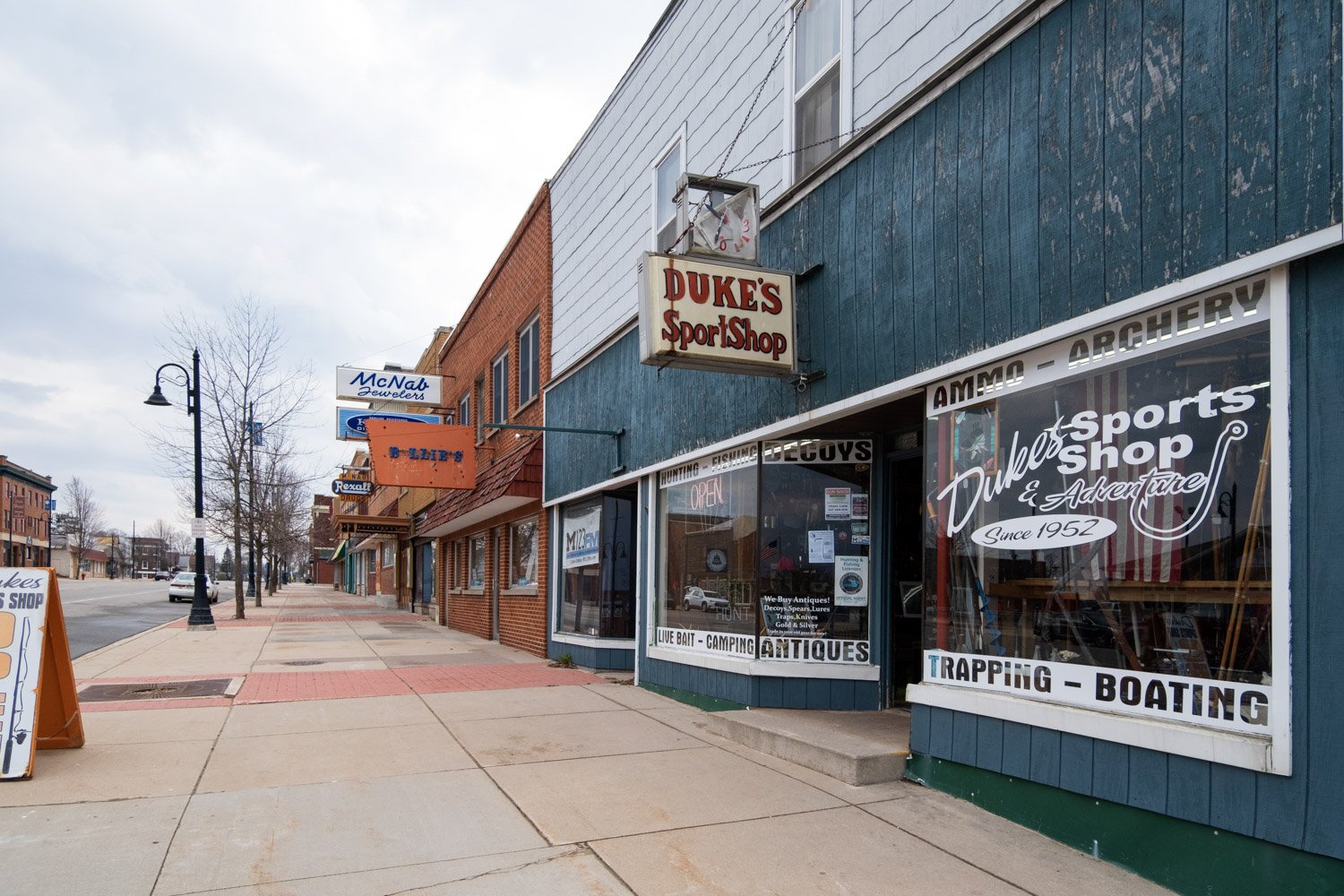
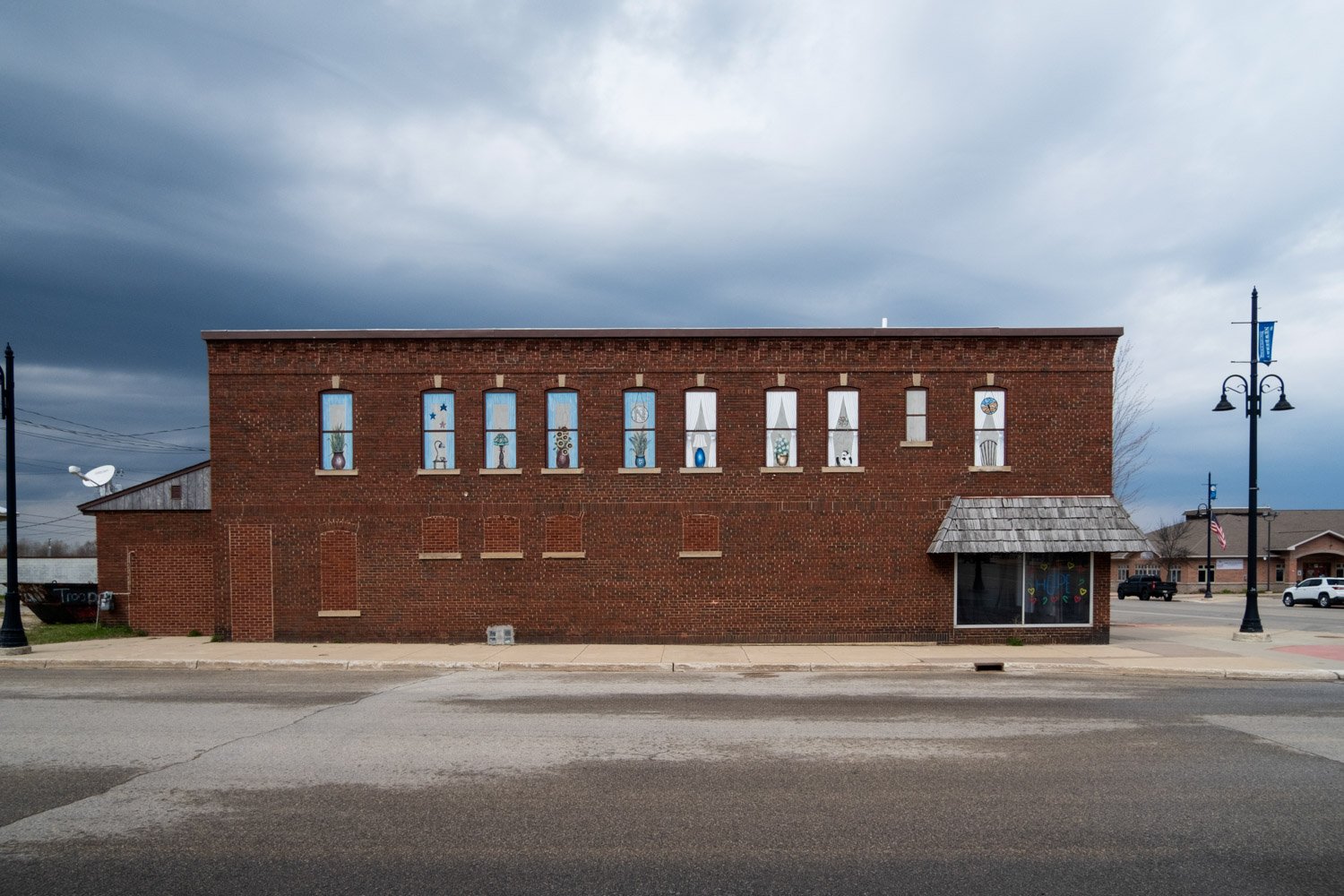
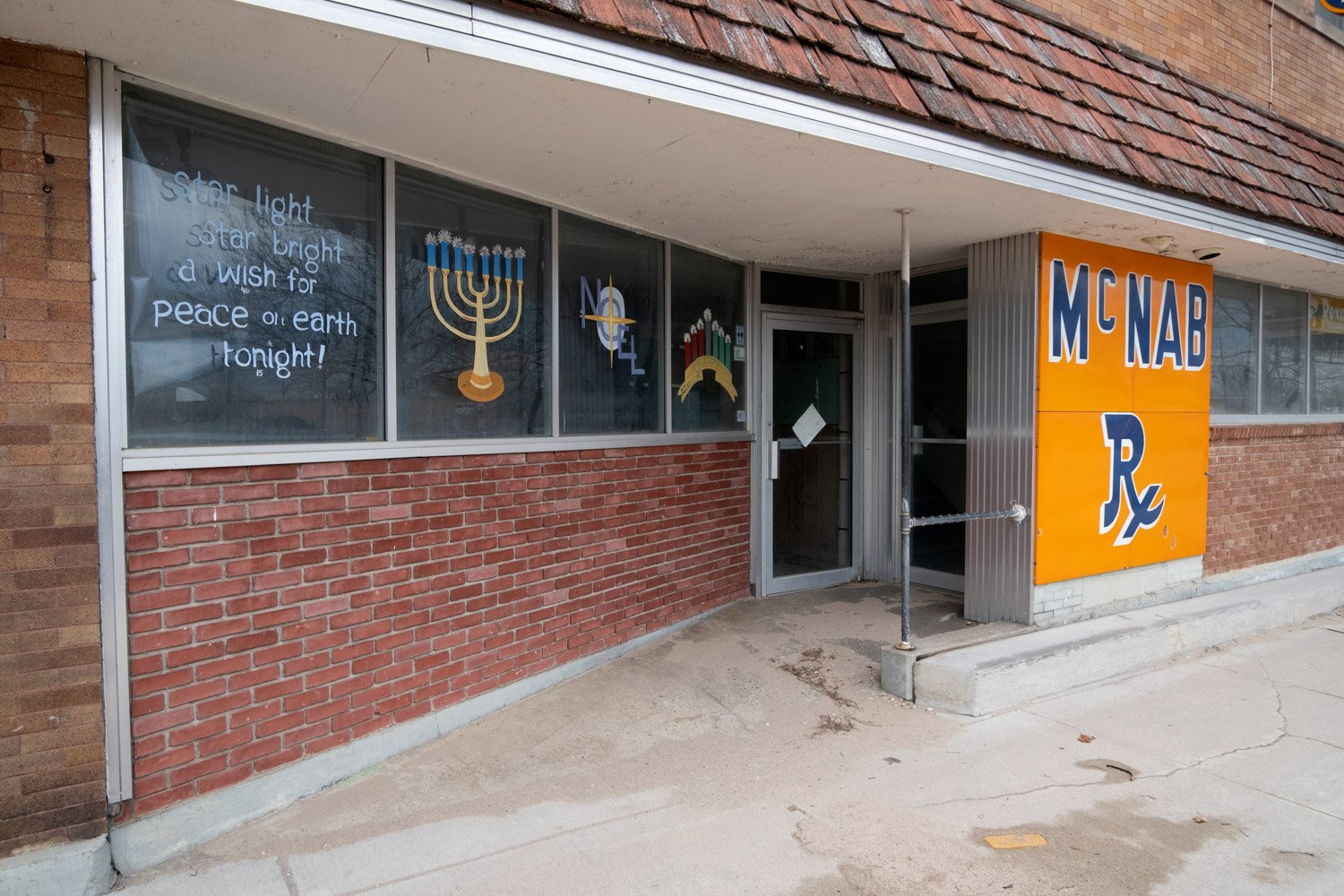
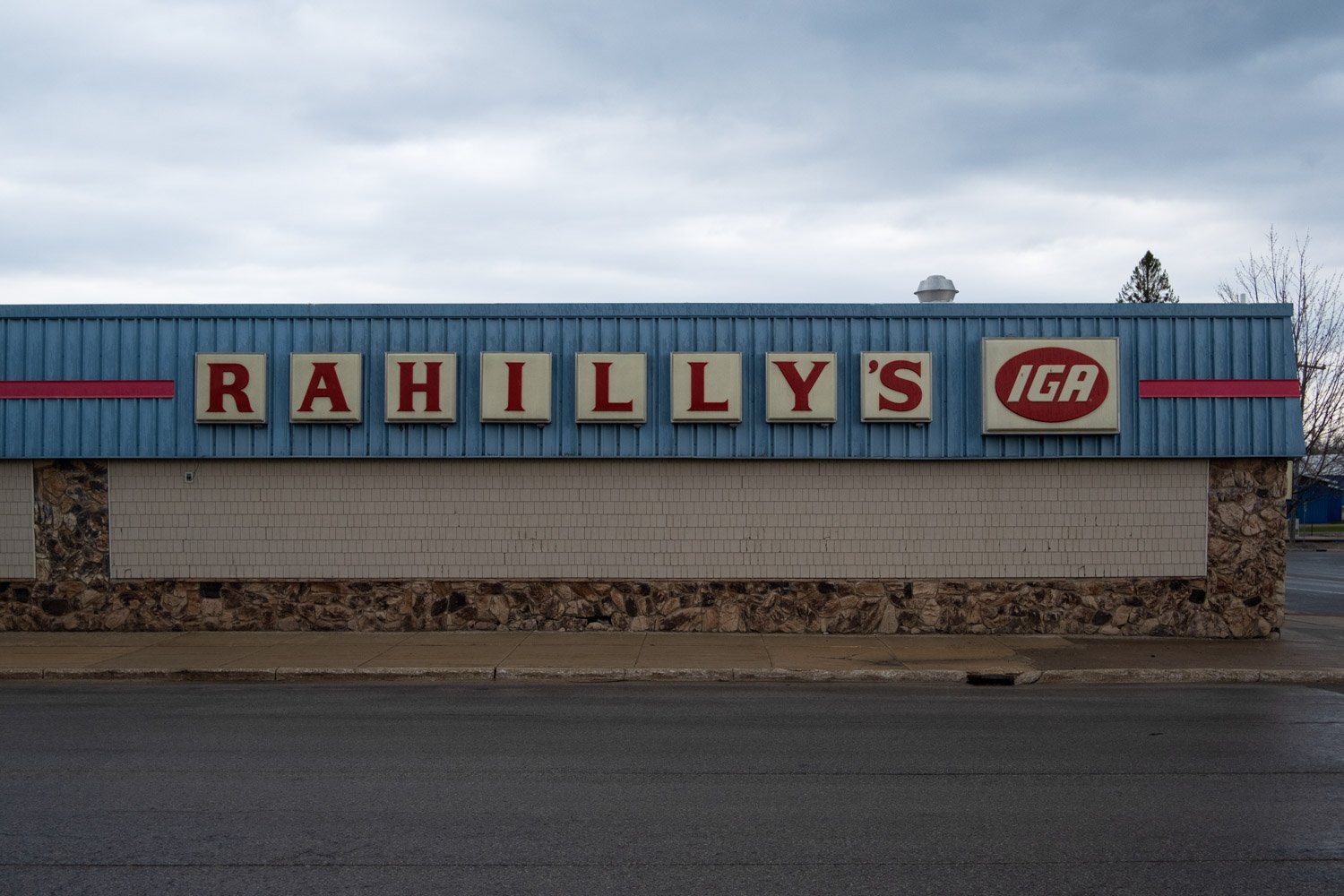
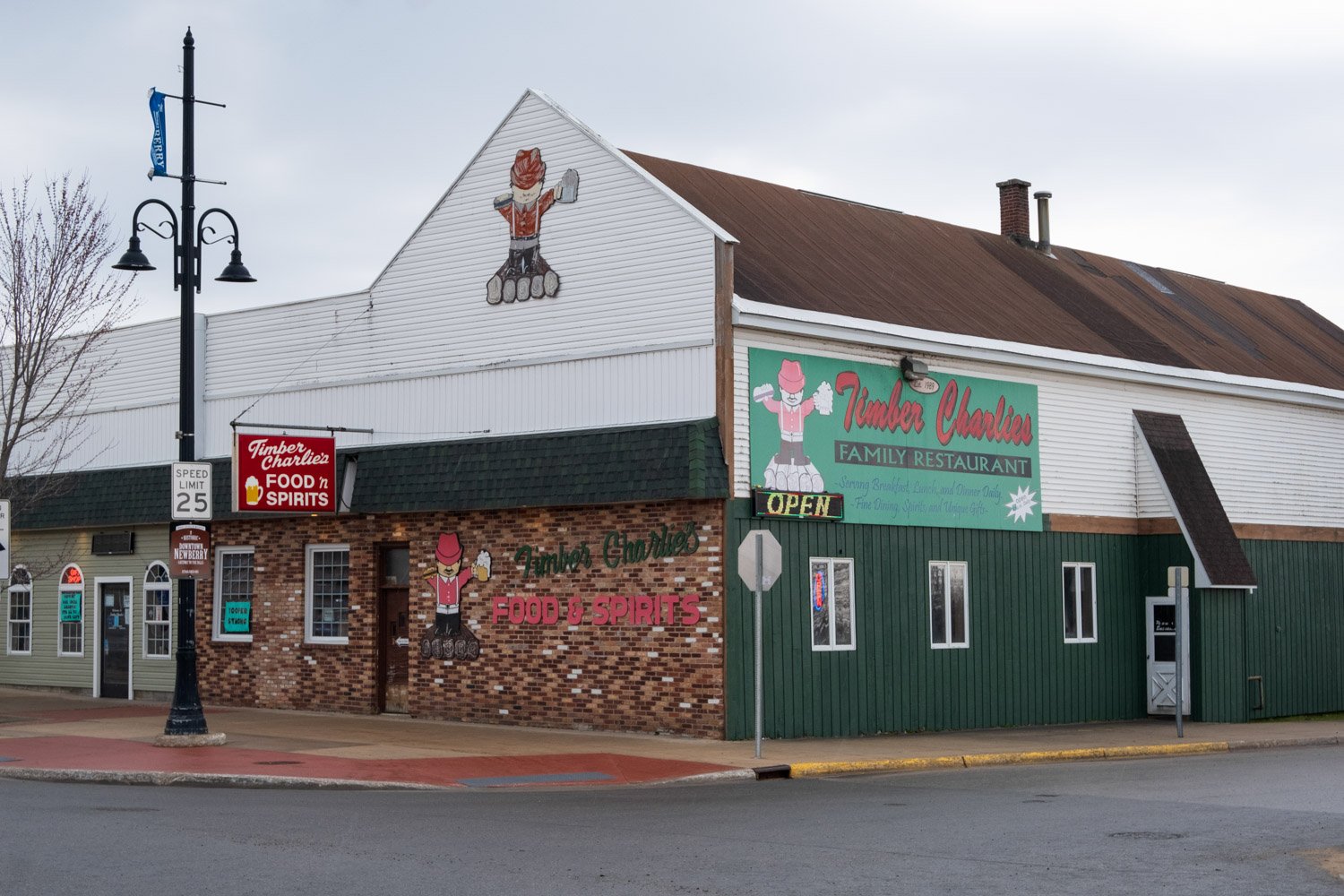
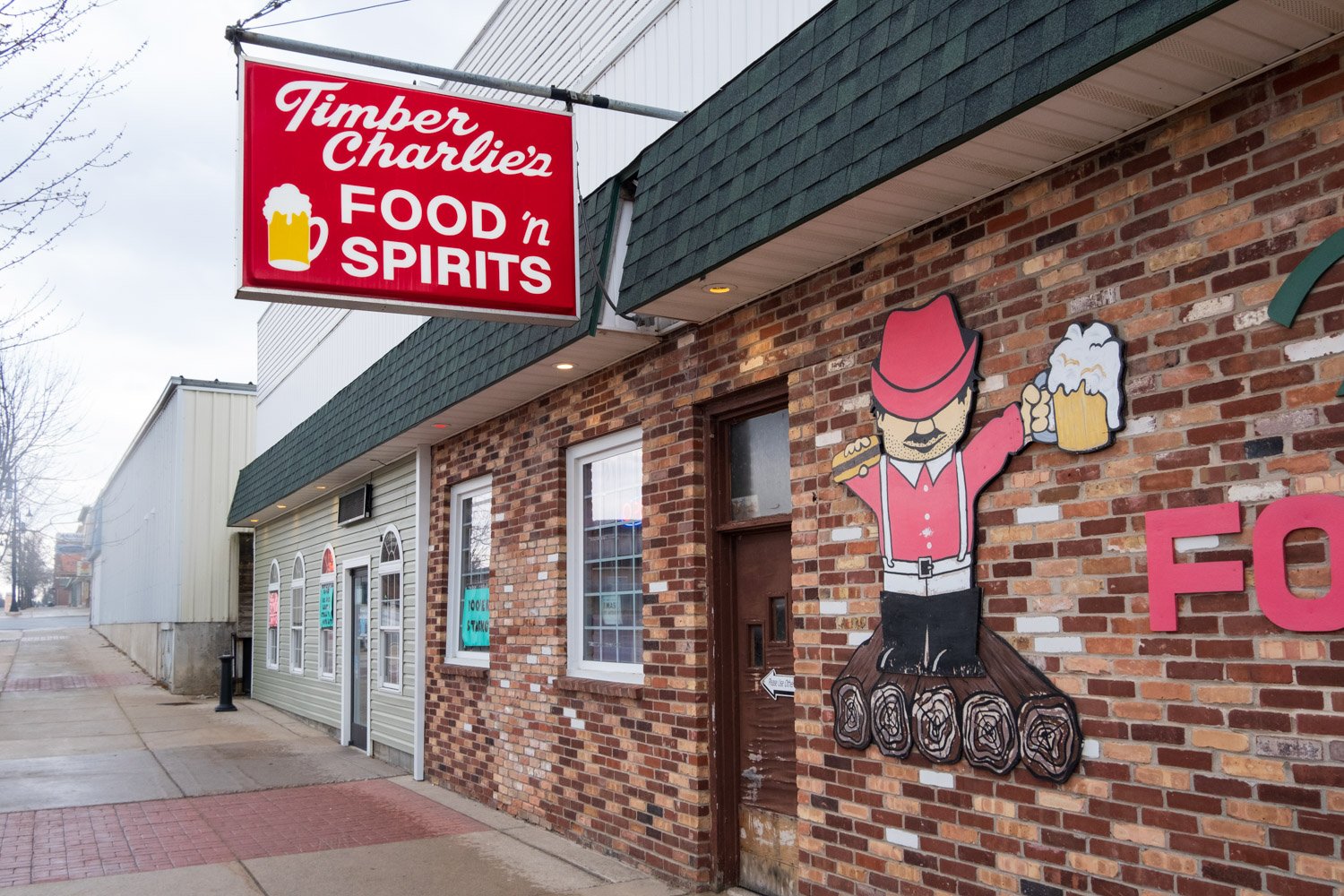
The Newberry News’ first release was in 1886 and still operates today. Duke’s Sports Shop has been outfitting and equipping sportsmen and women from Newberry since 1952. Mike and Billie McNab opened McNab Rexall Drug in the early 1950s and later operated Billie’s Little Store and McNab Jewelers next door, and their historic signs still hang on the main drag of Newberry. Timber Charlie’s was incorporated in 1991 and serves up burgers, brews, and good times year-round on the north edge of town. Rahilly’s IGA opened in the early 1980s and serves the community year-round, offering groceries, a deli, and other home items.
Today, Newberry is mainly known as a quaint tourist town with a stable population of locals. Located just 30 minutes from attractions like Tahquamenon Falls and Muskallonge Lake, it’s a common stopping point for gas, cell phone service, or a bit to eat. After the snow falls, Newberry becomes a hub for snowmobiling and other winter activities. If you have the chance to visit the town, I recommend stopping at Timber Charlie’s for a burger and fries, the Tahqua-Land Theatre for a show, the playground behind the school if you have kids, or Burbach Sales & Service to have our buddy Scott look at your car. No matter what you do in Newberry, I’m certain you’ll have a great time.

